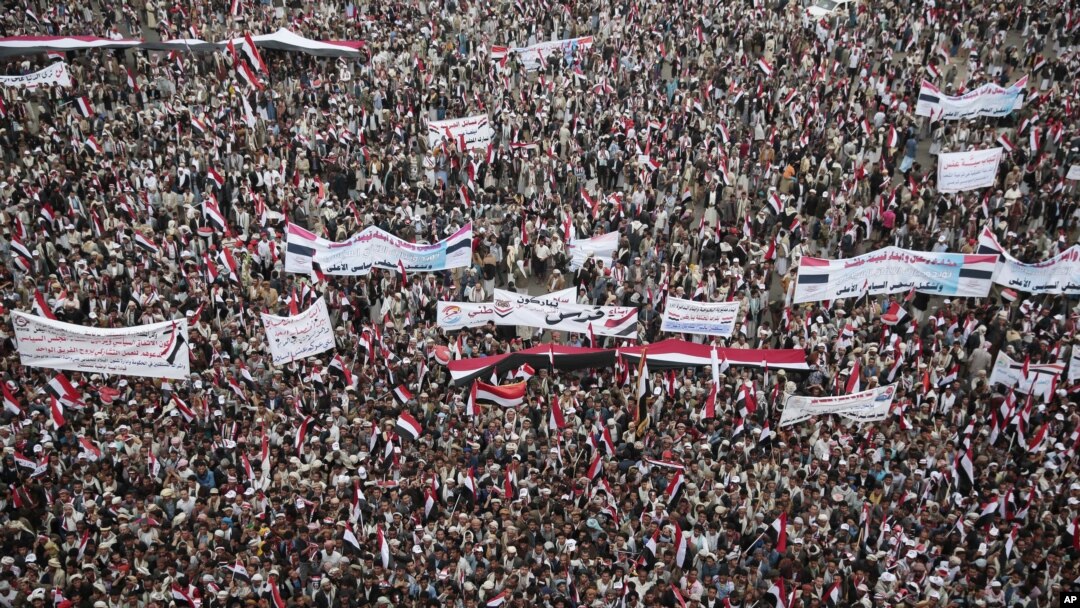Many thousands of Yemeni demonstrators backing Shi'ite Houthi rebels marched Saturday in the rebel-held capital, Sana'a, in a show of support for a controversial new governing council already opposed by the United Nations and many Western governments.
Organizers also billed the march as a rally of support for former President Ali Abdullah Saleh, a Shi'ite leader driven from power in 2012 after ruling for more than three decades.
With the march under way, witnesses said warplanes from a U.S.-backed Saudi coalition supporting the government of internationally recognized President Abdu Rabu Mansour Hadi bombed the nearby presidential palace and other targets. There were no immediate reports of casualties.
Saturday's airstrikes came just days after coalition warplanes hit a Yemen hospital near the Saudi border, killing at least 14 people, including volunteer physicians from the medical charity Doctors Without Borders. Separate Saudi strikes last week in the same area killed at least 19 people, most of them identified by authorities as children at a school in Haydan.
Voicing concern about the rising civilian casualties, the U.S. military said Saturday that it had slashed the number of U.S. advisers supporting the Saudi coalition.
A U.S. military spokesman in Bahrain told reporters the U.S. contingent was cut from 45 military planners to fewer than five. A Pentagon spokesman said U.S. cooperation with Saudi Arabia "is not a blank check."
Yemen's war pits Hadi and his Saudi coalition partners against the Iran-backed Houthis, who seized control of Sana'a in 2014, after years of claims of government discrimination.
The United Nations says more than 6,500 people, at least half of them civilians, have been killed in the conflict.
U.N.-sponsored peace talks aimed at ending the conflict ended this month when rebels moved forward with a unilateral plan to establish the governing council in areas under Houthi control.
At the time, U.N. peace envoy Ismail Ould Cheikh Ahmed refused to call the negotiations in Kuwait a failure, despite the fact that they'd made no tangible headway toward peace. But he also said the unilateral formation of the Houthi council was not in the interests of Yemen or the peace process.



